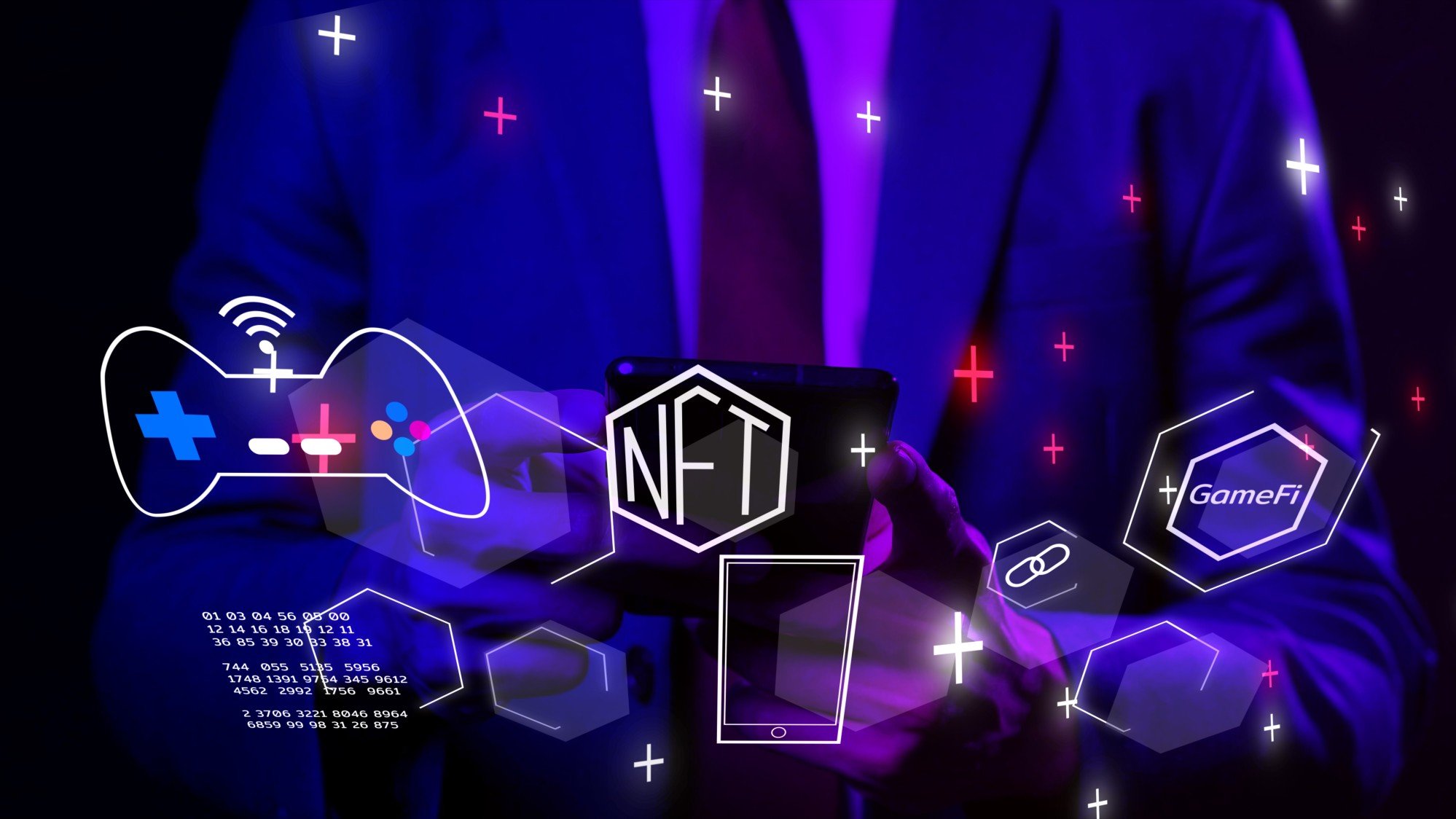How blockchain gaming is weathering the ‘crypto winter’ to build a new future for both game players and developers
- Blockchain-based games are set to become a key contributor to the global gaming market, with platforms like Wemix combining entertainment with crypto investment
- Henry Chang, CEO of gaming company Wemade, predicts that within the next three years, all games will have their own digital economies with NFTs and tokens
[Sponsored Article]
From finance to fine art, blockchain technology has proven to be useful across a number of industries. Over the past few years, the blockchain space has grown significantly in terms of both user adoption and applications.
That being said, not all use cases are here to stay. Ideas which were purely dependent on their novelty or hype have struggled during the “crypto winter” that began with the cryptocurrency crash earlier this year. Many companies went under due to poor management and unsustainable business models – problems which were largely ignored during the market upturn but have now become more apparent.
However, blockchain gaming has been proving its resilience through these difficult times. According to a report by market tracker DappRadar, blockchain games could see over US$10 billion in investments this year, more than doubling the US$4 billion raised in 2021. Even though the market cap has taken a significant hit – much like other crypto sectors – institutional confidence in game finance, or “GameFi”, continues to grow.
Wemix is one of the platforms leading the charge and shaping the future of blockchain gaming. Hosting over a dozen games and drawing millions of active participants, Wemix offers a seamless experience to gamers and developers alike.
As part of its vision, Wemix champions play-and-earn gaming, as opposed to the play-to-earn model that has been prevalent in the GameFi space. Play-to-earn games have faced criticism for promoting monetary incentives at the cost of core aspects such as gameplay and entertainment value. In contrast, play-and-earn games strike a balance wherein the prospect of earning money is an added benefit of the game rather than its main focus.

“First of all, games must be enjoyable,” says Henry Chang, CEO of Wemade, the South Korea-based gaming giant that is the parent company of Wemix. “With blockchain technology, they can provide economic benefits, too. The convergence is very important – it’s a key factor of game sustainability.”
This approach caters to traditional gamers who, above all, are seeking a fun experience, while also opening the door for non-gamers looking for an alternate form of crypto investment.
Besides the users, Wemix looks out for another key stakeholder: the developers. The company works closely with game developers, enabling them to transition from traditional to blockchain gaming. “Some game developers have difficulties transforming their own games into blockchain games,” Chang explains. “We provide solutions for them. They don’t need to know about blockchain technology or digital economies.”
With its transparent and scalable ecosystem, Wemix is lowering the barrier of entry into blockchain gaming. The platform saves game developers from the concerns that often arise in this space, such as building and maintaining a sustainable in-game economy. As a result, the developers can reap the benefits of blockchain technology while continuing to focus on gameplay and mechanics. This also helps ensure that Wemix’s blockchain games live up to the standards set by their traditional counterparts.
Global gaming market revenue is expected to reach US$225.7 billion by 2025, according to a forecast by industry research firm Newzoo, with blockchain games primed to play a significant role in that growth. Chang notes that annually, over 50,000 games are being released worldwide, and he believes that all will have their own game tokens, non-fungible tokens (NFTs) and decentralised finance (DeFi) mechanics within the next three years.

“Every game will have its own digital economy, and they’ll all be connected on the blockchain,” Chang says. “We will see this huge ecosystem where all games are connected economically and from a gameplay perspective.”
In an effort to make this outlook a reality, Wemix plans to have 100 games on its platform by the end of the year. “The aim of Wemix is to be an open blockchain gaming platform,” Chang explains.
He compares the platform to Web2 applications such as Steam and the Google Play Store, which act as distributors. But Wemix is going a step beyond that function by leveraging blockchain capabilities to enable a digital economy where users can earn money as part of the in-game experience.
For example, during gameplay, users can earn in-game items and game tokens, which can then be traded or converted into the Wemix crypto coin. This ability to gain real monetary value from in-game inventory, which Wemix supports through its blockchain-based platform, represents a significant upgrade from traditional gaming.
“Currencies and in-game items can be transformed into tokens and NFTs. All the items can be traded on the blockchain,” Chang says. He believes that in the near future, users will be able to trade these items freely – not just with other gamers, but also with people looking purely to invest.
Chang envisions Wemix as becoming the platform of choice for both gamers and game developers. Despite the ongoing crypto winter, he remains committed to building the future of gaming on blockchain technology. “We are pouring all our energy and resources into this,” he says.
He adds that given the cyclical nature of the crypto market, it would be wrong to cast judgments about the future of blockchain platforms based on the current state of things. “We have to persevere, no matter what happens. I think that’s the most important thing.”


